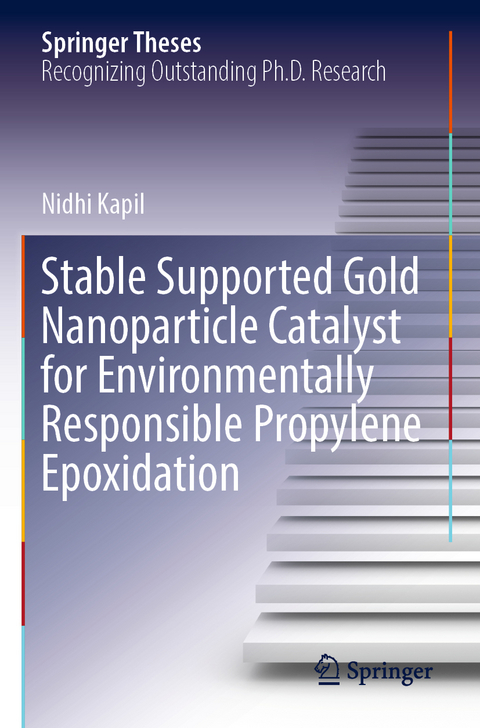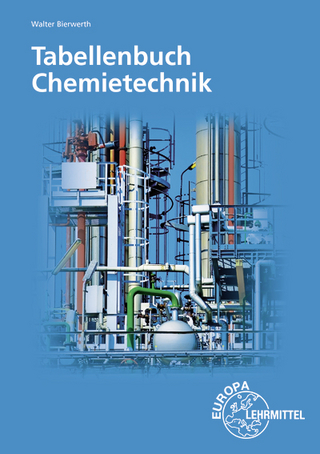
Stable Supported Gold Nanoparticle Catalyst for Environmentally Responsible Propylene Epoxidation
Springer International Publishing (Verlag)
978-3-031-15068-5 (ISBN)
This book describes a detailed multi-scale approach integrating nano- (active site), meso- (porous catalyst architecture) and macroscale (reactor) efforts, to address the challenges of producing a better epoxidation catalyst.
It contains an in-depth study of the design and synthesis of gold nanoparticles and their application as a catalyst for direct gas phase propylene epoxidation. "Direct" means using only hydrogen and oxygen in one step, which is key for sustainable manufacturing, as opposed to commercialised, more complex production routes requiring multiple steps, or integration with another chemical plant. The insights gained can be used for rational design for stable and selective catalysts for other reactions. It also details the step-by-step process to build an epoxidation reactor system with a focus on safety aspects, which can be used as a guidebook for undergraduate and graduate students in chemical engineering. Beyond heterogeneous catalysis, the new, easily accomplished methodology for synthesising atomically precise nanoparticles is shown to be relevant to electrocatalysis and to healthcare applications, such as anti-microbial surfaces.
This book will be of interest to researchers, engineers and experts in the related areas of chemical engineering, chemistry, material science and electrochemistry.
Dr Nidhi Kapil obtained her MSc (Honours) in Chemistry from Panjab University, India, in 2014 and her PhD from University College London in 2021. She is currently a post-doctoral researcher in the Centre for Nature Inspired Engineering, UCL. She has published several papers in international journals and presented at various international conferences. She was also awarded Precision AMR seed funding for studying the application of gold nanoparticles as antimicrobial surfaces.
Introduction.- Propylene Oxide and Its Production.- Propylene Epoxidation Reactor Design.- Synthesis of Gold Cluster-Based Catalyst and Effect of Pre-Treatments on Its Catalytic Performance.- Precisely Engineered Supported Gold Clusters as a Stable Catalyst for Propylene Epoxidation.- Tailoring Gold Nanoparticles with Tunable Core Size and Their Catalytic Applications.- Propylene Epoxidation on Au/Ti-containing Supports: The Effect of the Support.- Controlled Engineering of Supported Metal Nanoparticles Using Electrospraying: Robust Removal of Stabilising Ligands.- Conclusions and Future Work.- Appendix.
| Erscheinungsdatum | 07.11.2023 |
|---|---|
| Reihe/Serie | Springer Theses |
| Zusatzinfo | XXII, 197 p. 155 illus., 112 illus. in color. |
| Verlagsort | Cham |
| Sprache | englisch |
| Maße | 155 x 235 mm |
| Gewicht | 380 g |
| Themenwelt | Naturwissenschaften ► Chemie ► Technische Chemie |
| Technik | |
| Schlagworte | Electro-spraying • gold catalysts • Microporous-Mesoporous Supports • Non-thermal Oxygen Plasma • Propene Epoxidation • sustainable engineering • Zeolite Materials |
| ISBN-10 | 3-031-15068-6 / 3031150686 |
| ISBN-13 | 978-3-031-15068-5 / 9783031150685 |
| Zustand | Neuware |
| Haben Sie eine Frage zum Produkt? |
aus dem Bereich


